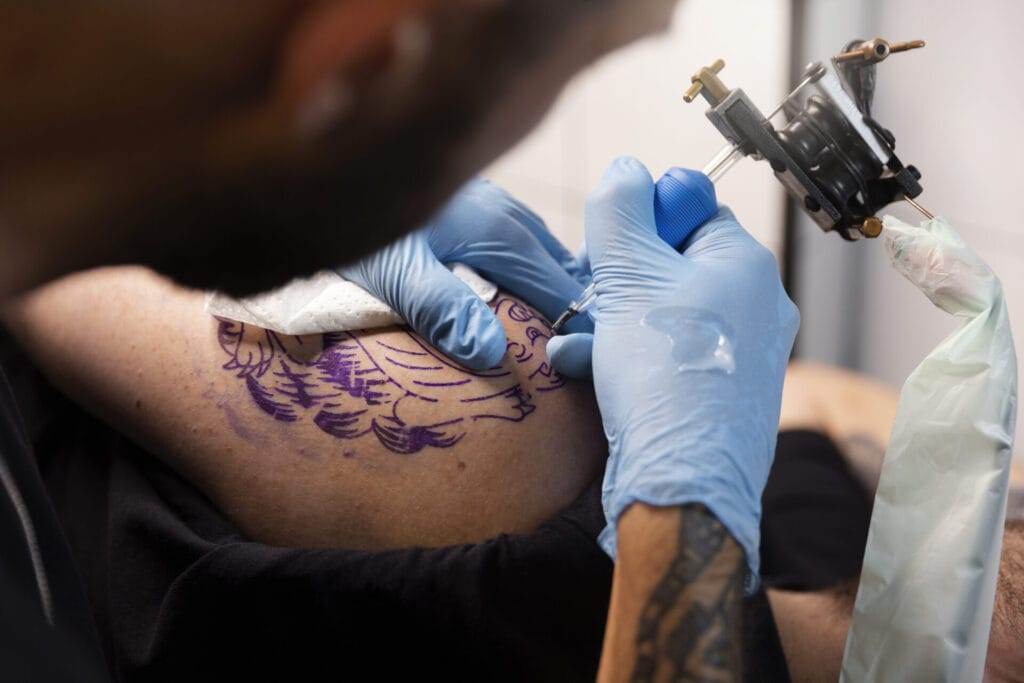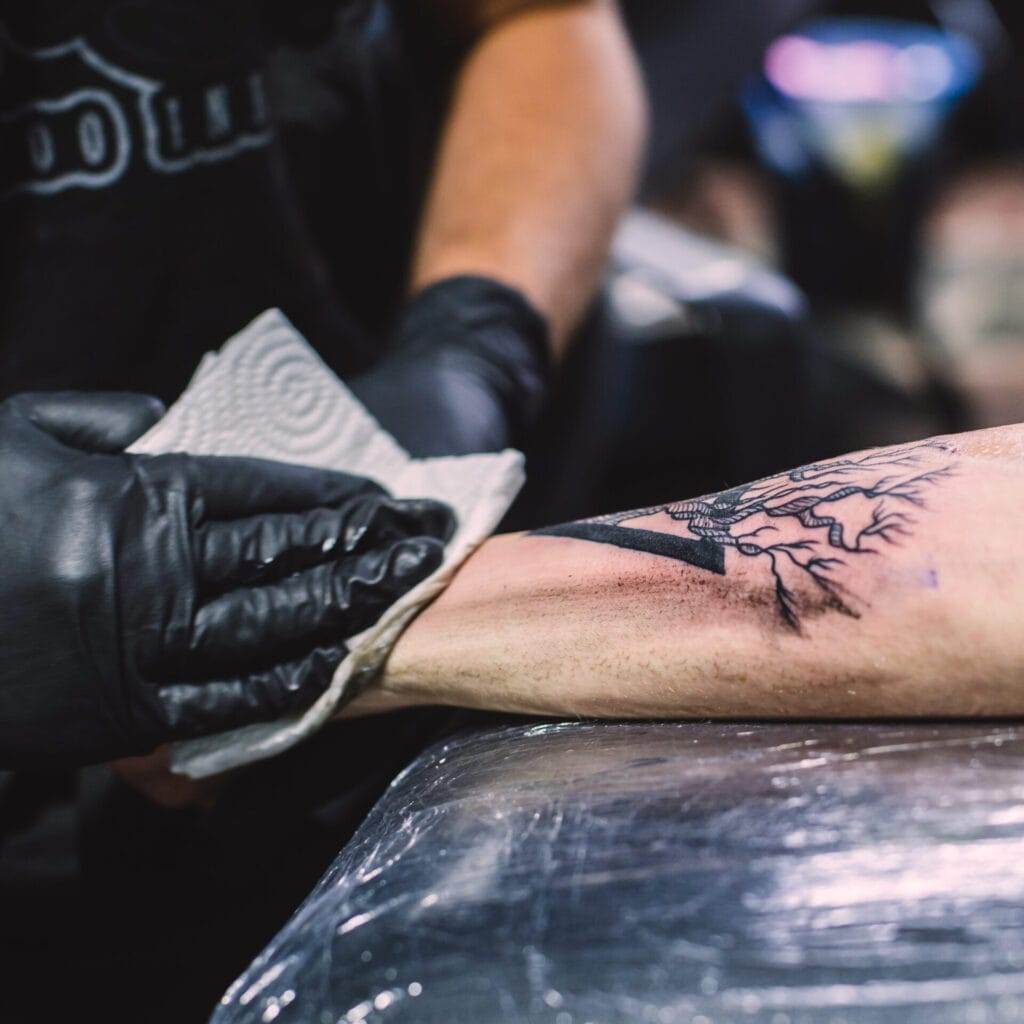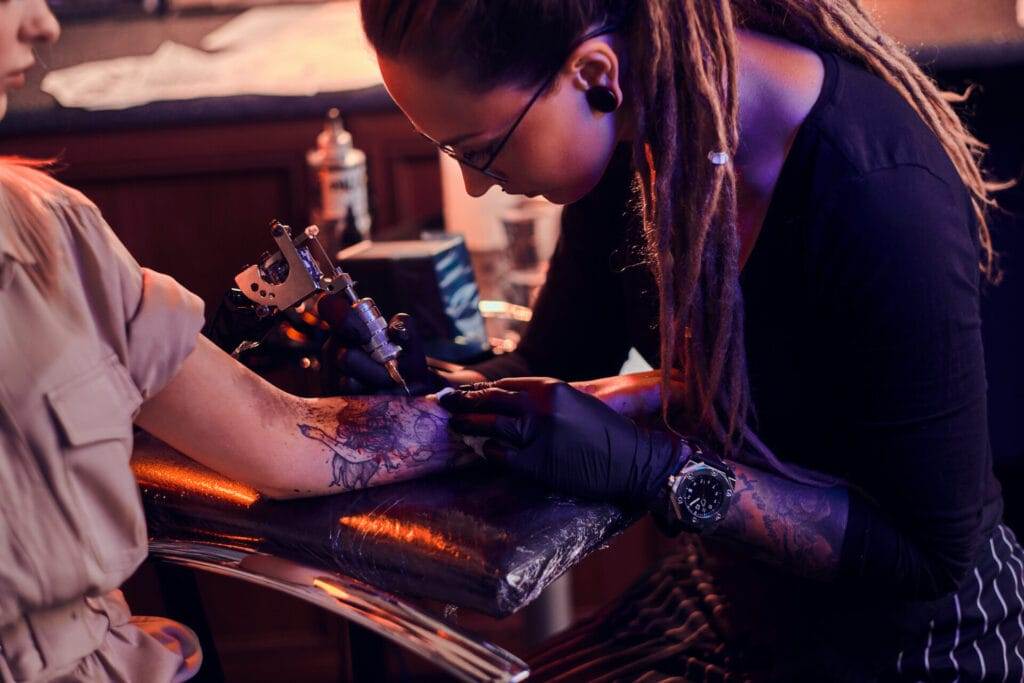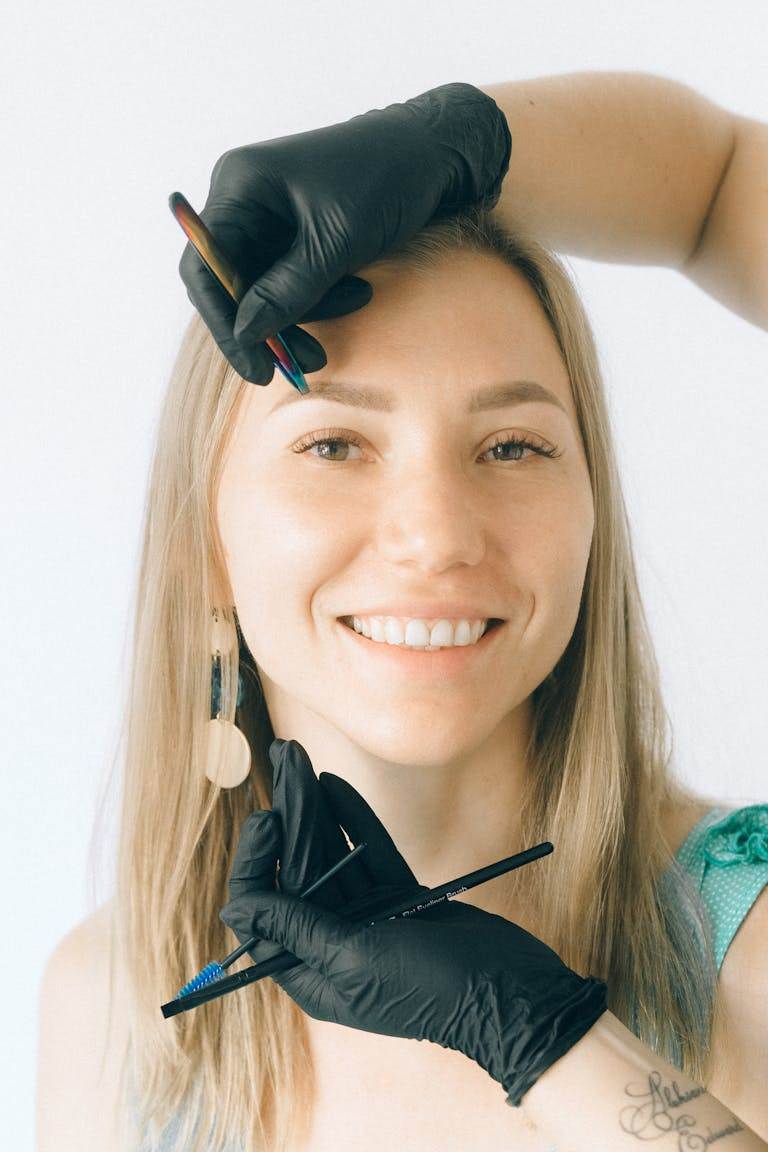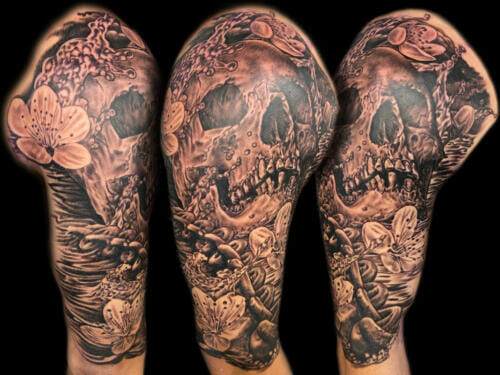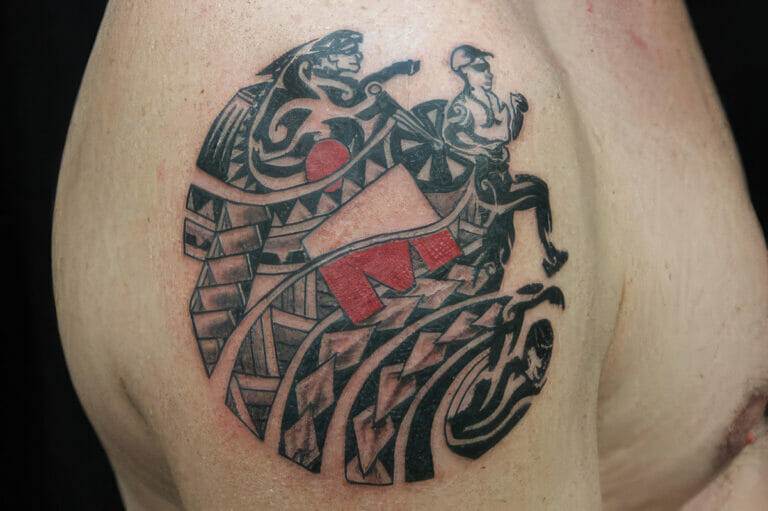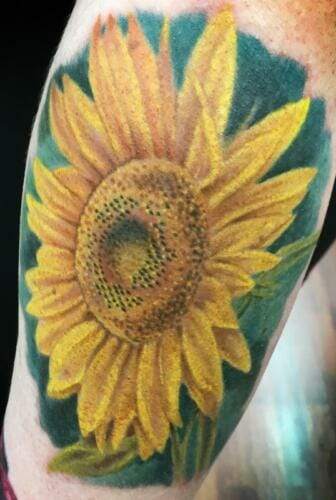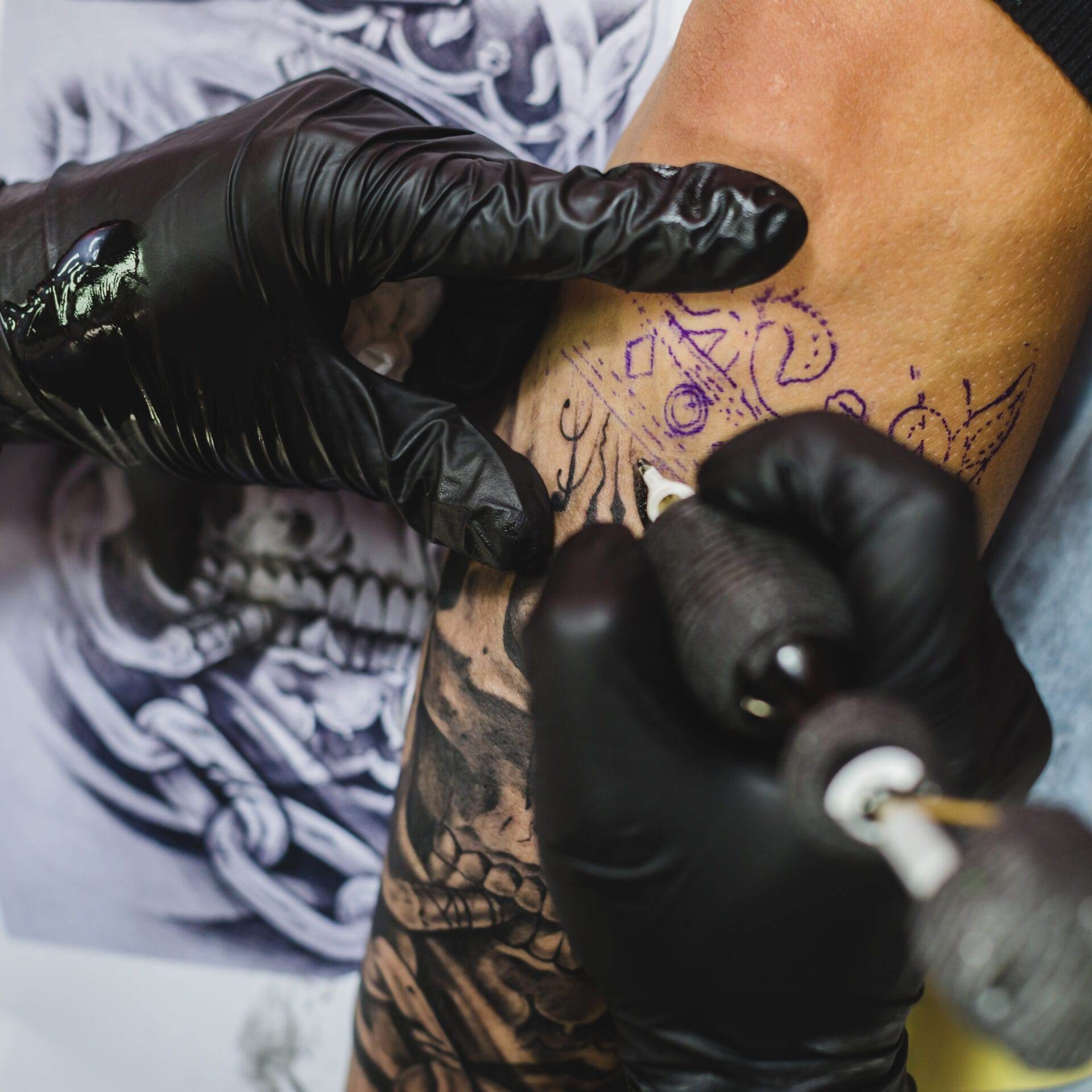
Tattoos have become increasingly popular as a form of self-expression and body art, but they also come with significant health risks if proper hygiene is not maintained. Tattoos involve breaking the skin, making hygiene a critical concern in tattoo studios. Proper hygiene practices in these establishments are essential for preventing the transmission of infectious diseases, such as hepatitis B and C, HIV, and various bacterial infections. Tattoo artists and clients alike must be aware of the importance of maintaining a clean and sterile environment to ensure the safety and well-being of all involved.
Tattoos are a permanent form of body art, and the process of creating them involves the use of needles to inject ink into the skin. This process can create small openings in the skin, which can serve as entry points for harmful pathogens if the proper precautions are not taken. Unsanitary conditions in tattoo studios can lead to the spread of bloodborne diseases, putting both the clients and the artists at risk. Inadequate sterilization of equipment, poor hand hygiene, and a lack of proper cleaning protocols can contribute to the development of serious health complications, such as skin infections, scarring, and even life-threatening illnesses.
Given the potential health risks associated with poor hygiene in tattoo studios, it is crucial that these establishments prioritize cleanliness and safety as a fundamental aspect of their operations. One such studio that has set an exemplary standard in this regard is Redemption Ink, a renowned tattoo studio that has established a reputation for its exceptional hygiene practices.
Key Takeaways
- Hygiene in tattoo studios is crucial for preventing infections and ensuring client safety.
- Poor hygiene practices in tattoo studios can lead to serious health risks, including infections and diseases.
- Redemption Ink sets a high standard for hygiene in tattoo studios, with strict sterilization protocols and a clean, organized workspace.
- Proper handwashing is essential in tattoo parlors to prevent the spread of bacteria and infections.
- Educating clients on hygiene expectations and regulatory standards for tattoo studio hygiene can help maintain a safe and clean environment for everyone involved.
Potential Health Risks of Poor Hygiene Practices
Unsanitary conditions in tattoo studios can have serious consequences for both the clients and the artists. The spread of bloodborne pathogens, such as hepatitis B and C, HIV, and various bacterial infections, is a significant concern in these establishments. When proper hygiene protocols are not followed, the risk of transmission increases dramatically.
Inadequate sterilization of equipment is a primary contributor to the spread of infectious diseases in tattoo studios. If needles, inks, and other tools are not properly cleaned and disinfected between uses, they can become contaminated with harmful microorganisms. This can lead to the development of skin infections, such as staph infections, as well as more serious conditions like sepsis, a life-threatening response to an infection that can cause organ failure.
Poor hand hygiene among tattoo artists is another factor that can contribute to the spread of infections. If artists do not thoroughly wash their hands before and after each procedure, they can inadvertently transfer bacteria and viruses from one client to another. This can result in the development of skin infections, as well as the transmission of bloodborne diseases.
The lack of proper cleaning protocols in tattoo studios can also create an environment that is conducive to the growth and spread of harmful microorganisms. If surfaces, equipment, and the overall workspace are not regularly disinfected and maintained, they can become breeding grounds for bacteria and viruses. This can increase the risk of cross-contamination and the development of serious health complications for both clients and artists.
To mitigate these potential health risks, it is essential that tattoo studios prioritize hygiene and implement rigorous protocols to ensure the safety of their clients and staff. By doing so, they can help to protect the health and well-being of everyone who enters their establishment.
Redemption Ink: A Case Study in Exemplary Hygiene
Redemption Ink, a renowned tattoo studio, has established a reputation for its exceptional hygiene standards, setting it apart from many other tattoo parlors in the industry. The studio’s commitment to cleanliness and safety has not only earned it a loyal clientele but has also served as a model for other tattoo establishments to emulate.
At Redemption Ink, hygiene is not just an afterthought; it is a fundamental aspect of the studio’s operations. From the moment clients step through the door, they are greeted with a clean and well-organized workspace that reflects the studio’s dedication to maintaining the highest standards of cleanliness. The studio’s artists are meticulous in their approach to hygiene, ensuring that every step of the tattooing process is carried out with the utmost care and attention to detail.
One of the key factors that sets Redemption Ink apart is its unwavering commitment to providing a safe and hygienic environment for its clients. The studio’s reputation for excellence in this area has not only attracted a loyal following but has also earned it the trust and respect of the local community. Clients who choose to get their tattoos at Redemption Ink can rest assured that they are in good hands, knowing that the studio’s hygiene practices are second to none.
Sterilization Protocols at Redemption Ink
At the heart of Redemption Ink’s exceptional hygiene standards are its rigorous sterilization procedures. The studio employs a comprehensive system to ensure that all equipment, from needles and inks to the surfaces and tools used during the tattooing process, are thoroughly sterilized and free from any potential contaminants.
One of the key components of this system is the use of autoclaves, which are specialized machines that use high-pressure steam to kill any bacteria, viruses, or other microorganisms that may be present on the equipment. These autoclaves are meticulously maintained and regularly tested to ensure that they are functioning at optimal levels, providing a reliable and effective means of sterilization.
In addition to the use of autoclaves, Redemption Ink also has strict protocols in place to ensure that single-use items, such as needles and other disposable materials, are properly disposed of after each use. This helps to prevent the risk of cross-contamination and ensures that each client receives a fresh, sterile set of equipment for their tattoo.
For reusable equipment, the studio has a comprehensive cleaning and disinfection process that is carried out between each use. This includes the thorough cleaning of all surfaces and tools, followed by the application of high-level disinfectants to kill any remaining microorganisms. By taking these extra precautions, Redemption Ink ensures that its equipment is not only visually clean but also free from any potential sources of infection.
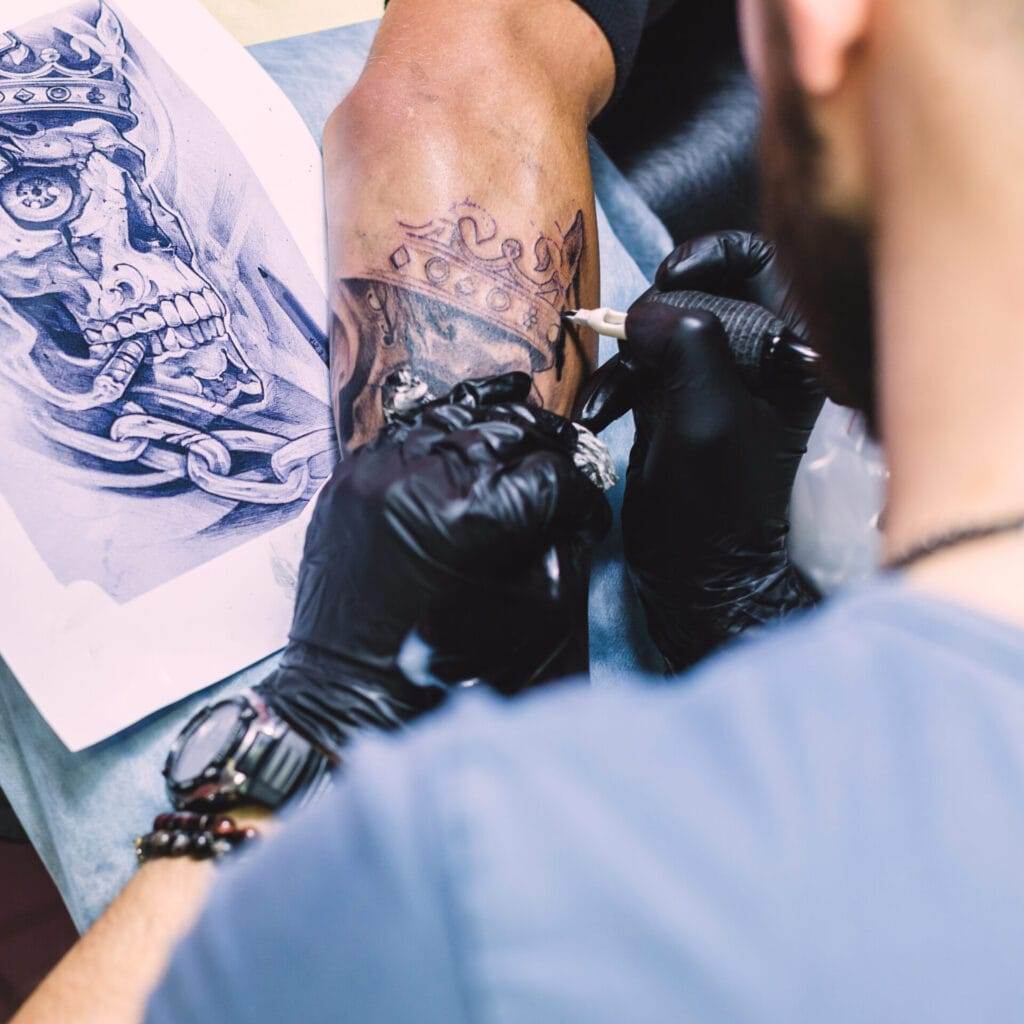
The Role of Proper Handwashing in Tattoo Parlors
| Hygiene Metric | Data |
|---|---|
| Number of Sterilized Tools | 100% |
| Frequency of Surface Disinfection | Every 2 hours |
| Use of Single-Use Ink Caps | Yes |
| Staff Training in Hygiene Practices | Regularly updated |
| Client Health Questionnaire | Completed for every appointment |
Handwashing is a fundamental aspect of maintaining hygiene in a tattoo studio, as it helps prevent the spread of germs and bacteria. At Redemption Ink, the artists are required to follow a comprehensive handwashing routine that is designed to ensure the highest levels of cleanliness and safety.
Before each tattoo session, the artists at Redemption Ink are required to thoroughly wash their hands using antimicrobial soap and warm water. This process involves scrubbing the hands for a minimum of 20 seconds, paying close attention to the nails, cuticles, and between the fingers – areas where bacteria can easily accumulate. Once the hands have been washed, the artists are required to dry them using a clean, disposable paper towel, ensuring that no moisture remains on the skin.
In addition to the initial handwashing, the artists at Redemption Ink are also required to wash their hands at various points throughout the tattooing process. This includes before and after handling any equipment, as well as before and after any direct contact with the client’s skin. By following this rigorous handwashing routine, the studio’s artists are able to minimize the risk of cross-contamination and ensure that they are working in a clean and hygienic environment.
The importance of proper handwashing in a tattoo studio cannot be overstated. It is a simple yet highly effective way to prevent the spread of infectious diseases and protect the health and safety of both the clients and the artists. By prioritizing this aspect of hygiene, Redemption Ink has demonstrated its commitment to providing a safe and trustworthy tattoo experience for all who visit its studio.
Maintaining a Clean and Organized Workspace
In addition to its rigorous sterilization protocols and handwashing practices, Redemption Ink also places a strong emphasis on maintaining a clean and organized workspace. The studio’s commitment to cleanliness extends beyond just the equipment and tools used during the tattooing process; it also encompasses the overall environment in which the work is carried out.
The studio’s workspace is meticulously maintained, with all surfaces and areas kept free of debris and contaminants. Regular cleaning and disinfection of the workspace, including the floors, walls, and countertops, are carried out to ensure that the environment remains free from any potential sources of infection. The studio’s layout is also designed with cleanliness in mind, with a well-organized flow that allows the artists to move efficiently and effectively while minimizing the risk of cross-contamination.
One of the key aspects of Redemption Ink’s approach to workspace maintenance is its attention to detail. The studio’s artists are trained to be vigilant in their observation of the environment, constantly monitoring for any potential sources of contamination or areas that may require additional cleaning. This attention to detail, combined with the studio’s comprehensive cleaning protocols, helps to ensure that the workspace remains a safe and hygienic environment for both the artists and their clients.
By prioritizing the cleanliness and organization of its workspace, Redemption Ink has demonstrated its commitment to providing a level of hygiene that goes above and beyond the industry standard. This attention to detail not only helps to protect the health and safety of those who visit the studio but also contributes to the overall positive experience that clients have when getting their tattoos at Redemption Ink.
Educating Clients on Hygiene Expectations
At Redemption Ink, the commitment to hygiene extends beyond just the studio’s internal practices; it also involves educating clients on the importance of hygiene and the studio’s protocols. The studio recognizes that maintaining a safe and hygienic environment is a shared responsibility, and it takes the time to ensure that its clients understand their role in this process.
Before any tattoo session begins, the artists at Redemption Ink take the time to explain the studio’s hygiene protocols to their clients. This includes information on the sterilization procedures used for equipment, the importance of proper handwashing, and the studio’s expectations for client behavior during the tattooing process. By setting clear expectations and providing this guidance, the studio empowers its clients to play an active role in maintaining a safe and hygienic environment.
In addition to the initial client education, Redemption Ink also provides ongoing support and information to its clients. This includes the display of informative signage throughout the studio, as well as the availability of educational materials that clients can refer to before, during, and after their tattoo sessions. By taking this proactive approach to client education, the studio ensures that everyone who visits Redemption Ink is aware of the importance of hygiene and the studio’s commitment to maintaining the highest standards of cleanliness.
By involving its clients in the hygiene process, Redemption Ink has created a sense of shared responsibility and ownership. This not only helps to reinforce the studio’s commitment to safety and cleanliness but also fosters a sense of trust and confidence among its clients. As a result, Redemption Ink has built a reputation as a tattoo studio that prioritizes the health and well-being of its clients above all else.
Regulatory Standards for Tattoo Studio Hygiene
Tattoo studios are subject to various regulatory standards and guidelines that govern their hygiene practices. These standards are in place to ensure the safety and well-being of both clients and artists, and they serve as a baseline for the industry to follow.
At Redemption Ink, the studio not only meets but exceeds these regulatory standards, demonstrating a commitment to going above and beyond the minimum requirements. The studio’s hygiene protocols are designed to align with the latest industry best practices and guidelines, ensuring that its clients receive the highest level of care and protection.
One of the key regulatory standards that Redemption Ink adheres to is the requirement for the proper sterilization of all equipment used during the tattooing process. This includes the use of autoclaves, as well as the implementation of strict protocols for the cleaning and disinfection of reusable tools and surfaces. By exceeding these standards, the studio ensures that its clients can trust that the equipment used during their tattoo sessions is free from any potential sources of contamination.
In addition to the sterilization requirements, Redemption Ink also complies with regulations regarding the proper disposal of single-use items and the maintenance of a clean and organized workspace. The studio’s commitment to these standards not only helps to protect the health and safety of its clients but also demonstrates its dedication to upholding the highest levels of professionalism and responsibility within the tattoo industry.
By consistently meeting and exceeding the regulatory standards for tattoo studio hygiene, Redemption Ink has established itself as a leader in the industry. This commitment to excellence has not only earned the studio a reputation for safety and quality but has also set a benchmark for other tattoo establishments to strive towards.
The Long-Term Benefits of Prioritizing Hygiene
Redemption Ink’s unwavering commitment to maintaining exceptional hygiene standards has not only protected the health and well-being of its clients but has also contributed to the studio’s long-term success and growth.
By prioritizing hygiene as a fundamental aspect of its operations, Redemption Ink has built a reputation for safety and quality that has resonated with its clients. The studio’s clients know that they can trust the studio to provide a clean and hygienic environment, and this trust has translated into a loyal customer base that continues to return to Redemption Ink for their tattoo needs.
The studio’s focus on hygiene has also had a positive impact on the broader tattoo industry. By setting a high standard for cleanliness and safety, Redemption Ink has helped to raise the bar for other tattoo establishments, encouraging them to reevaluate their own hygiene practices and strive for similar levels of excellence. This, in turn, has contributed to a greater sense of professionalism and responsibility within the industry, ultimately benefiting both artists and clients alike.
Moreover, Redemption Ink’s commitment to hygiene has also had a tangible impact on its financial performance. By providing a safe and trustworthy environment for its clients, the studio has been able to attract a steady stream of customers who are willing to pay a premium for the peace of mind that comes with knowing they are in good hands. This has allowed the studio to maintain a strong and sustainable business model, even in the face of competition from other tattoo establishments.
In the end, Redemption Ink’s focus on hygiene has not only protected the health and safety of its clients but has also contributed to the studio’s long-term success and growth. By setting a high standard for cleanliness and safety, the studio has not only earned the trust and respect of its clients but has also helped to raise the bar for the entire tattoo industry.
FAQs
What is the importance of hygiene in tattoo studios?
Hygiene in tattoo studios is crucial for preventing the spread of infections and diseases. Proper hygiene practices help ensure the safety and well-being of both the tattoo artists and their clients.
What are some common hygiene practices in reputable tattoo studios?
Reputable tattoo studios adhere to strict hygiene practices, including sterilizing equipment, using disposable needles and gloves, maintaining a clean and organized workspace, and following proper hand-washing protocols.
How does Redemption Ink prioritize hygiene in their tattoo studio?
Redemption Ink prioritizes hygiene in their tattoo studio by implementing rigorous cleaning and sterilization protocols, using single-use disposable items whenever possible, and regularly training their staff on best hygiene practices.
Why is it important for clients to consider hygiene when choosing a tattoo studio?
Clients should consider hygiene when choosing a tattoo studio to protect themselves from potential infections and ensure a safe and positive tattooing experience. A clean and hygienic environment reflects the professionalism and care of the tattoo studio.
What are some red flags to look out for in terms of hygiene in tattoo studios?
Red flags for poor hygiene in tattoo studios include visibly dirty or disorganized workspaces, reused needles or equipment, lack of hand-washing facilities, and a general disregard for cleanliness and sterilization practices.

